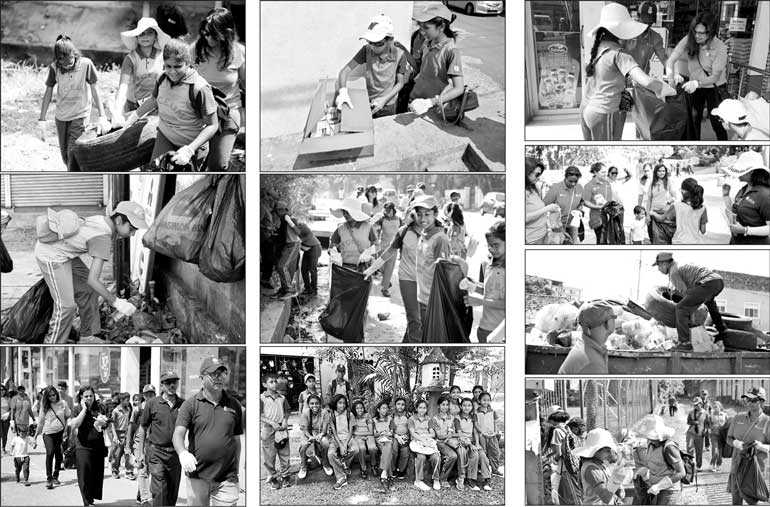Sunday Feb 22, 2026
Sunday Feb 22, 2026
Saturday, 16 March 2019 00:00 - - {{hitsCtrl.values.hits}}

The public consumption of plastic has continued to rise over the years, which amounts to about 20,000 plastic bottles being bought every second. With the intention of making a difference, the Global Social Leaders of Lyceum International School, Kurunegala organised the ‘Kidney: Prize for Life Walk’ which took place on 10 March. The goal of this event was to collect glass and plastic in a selected area of Kurunegala City and sell the waste to the Municipal Council for recycling, which will reduce the harm being caused to the environment.
The GSL Team of Lyceum International School, Kurunegala gathered at the school gates and started the walk at 9 a.m. The team that was made up of the Headmaster, Sectional Head, teachers, parents, students, as well as the media partners had an enjoyable experience while working together despite the heat of the day.
Senula Jayalath, a team member of the GSL Project stated, “None of us thought that we would be able to collect so much, but we ended up collecting two tractors full of waste. We handed this collection over to the Municipal Council to raise money for the GSL Project of Lyceum International School, Kurunegala. The whole walk was a great success.”
Speaking at the ‘Kidney: Prize for Life Walk’, Shaini Hapuarachchi team leader of the GSL Project said, “Global Social Leaders of the Lyceum International School, Kurunegala will focus on creating a solution for the unavailability of safe drinking water in a selected school and its surrounding village area of the dry zone. The three main objectives of our project include providing the school community and villagers with safe drinking water, enhancing the sanitary facilities of the school, and reducing the number of recorded patients and deaths due to unavailability of drinking water in this area. So, we believe that the school community and the villagers will be benefited by this project.
“We have plans to have a water purification unit in the selected school, ‘Ipaloogama School’ that will supply clean drinking water that is fit for human consumption to the school and the people in the area. In the meantime, our plans include planting special plants that are recommended by the traditional medical practitioners of the chosen village. These plants will enhance the quality of drinking water by making it fit for human consumption.
Through this method, we hope to improve the quality of drinking water in the area and reduce the number of patients who are suffering from chronic kidney diseases and urinary problems.”